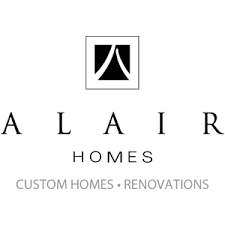High net homeowners hiring a general contractor to oversee their renovations have a lot to think about. While there are obvious risks present before and during construction, the risks do not end when your general contractor leaves your property.
How Faulty Workmanship Impacts Homeowners
One of the biggest risks to consider after construction is through is faulty workmanship. A contractor who puts on a faulty roof that later leaks or completes electrical work that later causes a fire can result in a financially devastating situation for you and your family. While many homeowners will try to go after contractors in these situations, commercial general liability policies (CGL) seldom cover faulty workmanship especially when it takes years to manifest, as it often does. The only alternative is to pursue expensive and time consuming litigation against the general contractor which may or may not be successful. The solution to this problem is to require that any general contractor, especially one who will be working on a high net property, posts a performance bond that guarantees all work will be up to the standards outlined in the contract. While securing such a bond may result in a cost increase for the project, it is well worth the extra two to five percent increase to know that any future concerns will be addressed and resolved.
Renovation Warranties and a Company’s Reputation
Another important aspect to consider when hiring a renovation professional is the company’s reputation and years in business. Even if the company you hire offers an extensive warranty that remains in place long after the build is complete, the warranty is useless if the company refuses to stand behind it or goes out of business before you can file a claim. Check with friends and neighbors to get their opinions about the company you plan to use, and consulting with the Better Business Bureau and professional contracting organizations to ensure the company is not brand new to the area, has a strong local reputation and stands behind their warranty claims.
Protecting Valuables from Theft or Loss
For homeowners undergoing major renovations that will keep them away from the house for a period of time, it is also important to consider the supervision offered by the project manager and the reputation of a company. When a homeowner leaves their house, any valuables within it are at risk of damage or theft that often remains undiscovered until after construction is complete. For this reason, it is important to take a thorough inventory of all valuables and secure them during construction. Whenever possible, moving items away from the construction site is recommended to protect them from dust, chemical exposure, damage due to vibrations and unintentional loss. This includes not only items with monetary value but anything that contains sensitive information such as a computer hard drive, bank records or other legal documents. Hiring a renovation professional who offers an on-site project manager throughout the project can also help to protect these valuables from potential loss or damage when numerous sub-contractors are present during the various stages of construction. Once the renovation is complete, homeowners should complete another walk-through with the project manager to ensure there is no damage or theft and immediately address any concerns before making final payment.
The pride a homeowner takes in planning a renovation must include careful consideration about any remodeling professionals who will assist with the project. By carefully considering your options when it comes to general contracting professionals and recognizing potential threats that exist, you can save your family time, money and hassle in the long run.
The professionals at Alair Homes Edmonton are always available to assist you in planning your high net home renovation. Our award winning general contracting teams have completed renovations of all sizes across North America. We are committed to honesty, integrity and complete transparency and back our work up with a warranty that exceeds industry standards. For more information or to schedule a free, no obligation consultation, give us a call.
